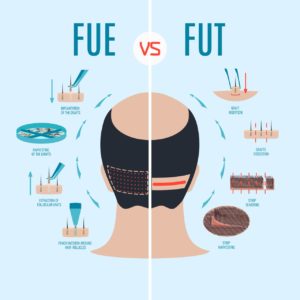Hair transplant is a technique of removing hair follicles from one area of the body or ‘donor site’ to a bald part or ‘recipient site.’
Follicular unit transplantation or FUT is modern hair transplantation method that harvests groups of hair to mimic the natural orientation of the original hair, and involves stripping a small amount of tissue. In follicular unit extraction or FUE, each hair follicle is harvested in the scalp without removing tissue.
In this post, you’ll learn about the things you need to do before undergoing a hair transplant in Turkey.
Participate in Preoperative Assessment
Upon your initial consultation, your surgeon will analyze your scalp. It’s important to choose a trusted and reputable hair transplant surgeon, like one from Vera Clinic, to ensure successful results.
Here are the pre-operative procedures your doctor might ask you to do:
- Undergo a preoperative folliscopy or hair follicle imaging test to know your actual hair density. This procedure is crucial to assess the results of the newly transplanted hair grafts accurately.
- Your doctor may also ask you to take preoperative vitamins and topical minoxidil application before the procedure. Minoxidil is a medication used to help hair growth by treating thinning hair among women and male pattern baldness. This medicine is typically used even before considering a hair transplant.
Avoid Taking Medicines
For several days before the hair transplant, you are advised to refrain from taking any medicines that might result in intraoperative bleeding and poor grafting. Stop taking medications at least a week before the procedure or as otherwise prescribed by the doctor. To prevent graft or wound infections after the procedure, you’ll be given postoperative antibiotics.
Here are the medications you need to stop taking before a hair transplant procedure:
- Ibuprofen-containing products like Naproxen
- Aspirin (also other blood thinning agents that increase the risk of bleeding)
- Homeopathic vitamins (may increase bruising or bleeding)
Stop Smoking
If you’re a smoker, discontinue smoking at least two weeks before the hair transplant. Tobacco smoke or vape smoke contains harmful chemicals that can affect the health and recovery of the graft site. The nicotine content of cigarettes may constrict your blood vessels, thereby reducing blood flow to the scalp area. Smoking cessation promotes proper blood circulation and oxygen flow to your scalp.
Stop Drinking Alcohol
Drinking alcohol also increases the likelihood of bleeding and bruising during and after the hair transplant, so it is advisable to stop taking any form of alcoholic beverages before the procedure. Avoid alcohol at least a week prior to the hair transplant.
Hair Preparation
You’re not required to get a short haircut before hair transplantation. The nurse or doctor will shave the donor site (only small portions) if you’re undergoing FUE. The additional length of hair can help while you’re under the recovery period. The extra hair length provides some coverage to treated areas.
Here are the hair preparation tips you need to do before a hair transplant:
- Shampoo hair and rinse properly to remove all shampoo residues.
- Don’t apply gels, creams, or oily substances in your hair.
- Don’t wear ponytails, clips, and ribbons. As much as possible, avoid wearing hats or wigs before the procedure to prepare the donor and recipient sites. Covering the scalp may promote microbial growth due to warmth and sweat.
Ask Questions
The best time to ask questions concerning the procedure is before undergoing the hair transplant. Your doctor has probably explained things to you, from a new bald cure, trends, to hair transplant options, but you might have doubts and follow-up questions you want to ask your doctor.
Here are some of the questions you can ask your surgeon before undergoing a hair transplant:
- How long will the procedure take? The duration of hair transplant depends on the procedure, whether FUE or FUT. It may last for a couple of hours (200 grafts or more) to days (2,000 to 3,000 grafts). That’s why a series of procedures might be required.
- How long will the recovery period take after the hair transplantation surgery? Generally, you’ll be able to return to work within 2 to 4 days after the surgery. Some crusting will still be evident 7 to 10 days after a hair transplant.
- Does the procedure leave a visible scar? FUE harvesting doesn’t need the removal of large scalp tissue. It doesn’t leave any linear scars, but only small scars that are virtually not visible.
- Will the procedure provide natural results? FUE hair transplant provides natural results.

Conclusion
By keeping all the tips mentioned above, you’ll be able to prepare yourself properly before the hair transplant procedure. You’ll have the peace of mind that everything is all set, and you’re confident to undergo the procedure with minimal to no stress and hassle involved.




